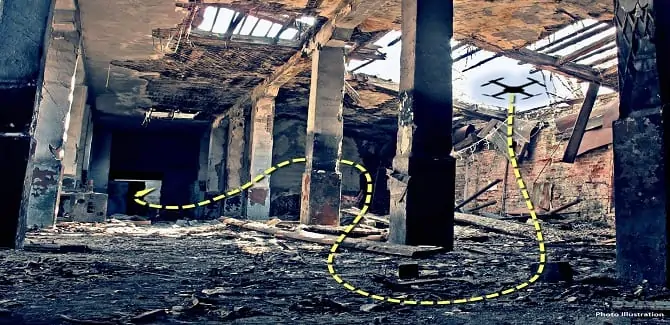Scientific Systems Company, Inc. (SSCI) has been awarded a contract from the Defense Applied Research Projects Agency (DARPA) to develop autonomous visual control systems for small unmanned air vehicles (UAVs) operating in cluttered outdoor and indoor environments without GPS or human operator assistance.
SSCI’s Rapid Adaptive preDiction for Vision-based Autonomous Navigation and Evasion program (Rapid ADVANCE) is based on a fundamentally new approach to reactive navigation, resulting in very low size, weight, and power requirements for use on small UAVs. Under the direction of Dr. N. Andrew Browning, the SSCI project is part of DARPA’s Fast Lightweight Autonomy (FLA) program. The aim of this program is to develop and demonstrate the capability for small and fast (20 m/s) UAVs to fly autonomously through complex, cluttered environments. DARPA selected SSCI and two other teams to develop advanced autonomy software – specifically focusing on sensing, perception, planning, and control using commercially available components. The UAV platform is the same for all teams, putting emphasis on comparative performance of the sensing and control systems.
Dr. Raman Mehra, founder and CEO of SSCI notes “Our products provide the brains and nervous systems for unmanned vehicles to operate autonomously and accomplish their missions in difficult environments.” The Rapid ADVANCE project is a prime example of SSCI development capabilities. SSCI selected AeroVironment as a teaming partner for this two-year program, bringing AeroVironment’s capabilities in small UAV flight dynamics and control. Algorithms developed under this program impact a wide range of unmanned systems by reducing the size, weight, and power requirements of the autonomy system, eliminating remote control wireless links, and navigating through unknown, complex, cluttered environments without GPS.



















